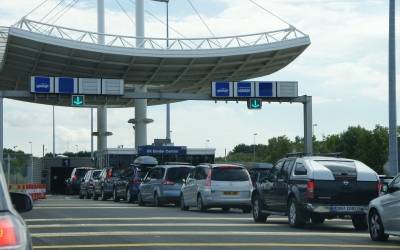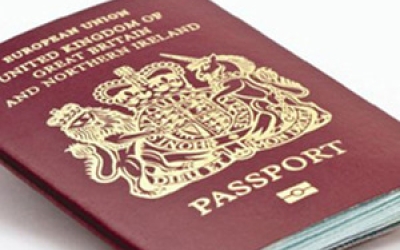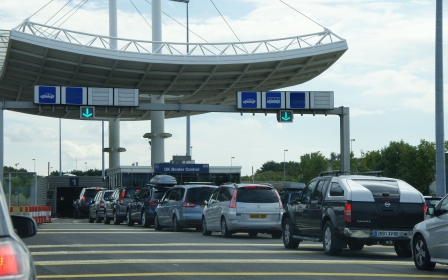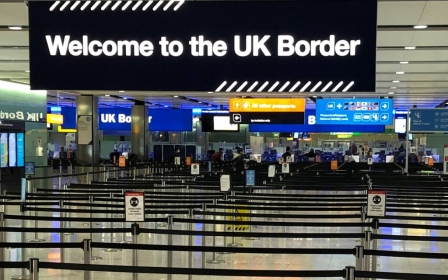Man unlawfully stripped of UK citizenship reunited with family after four years
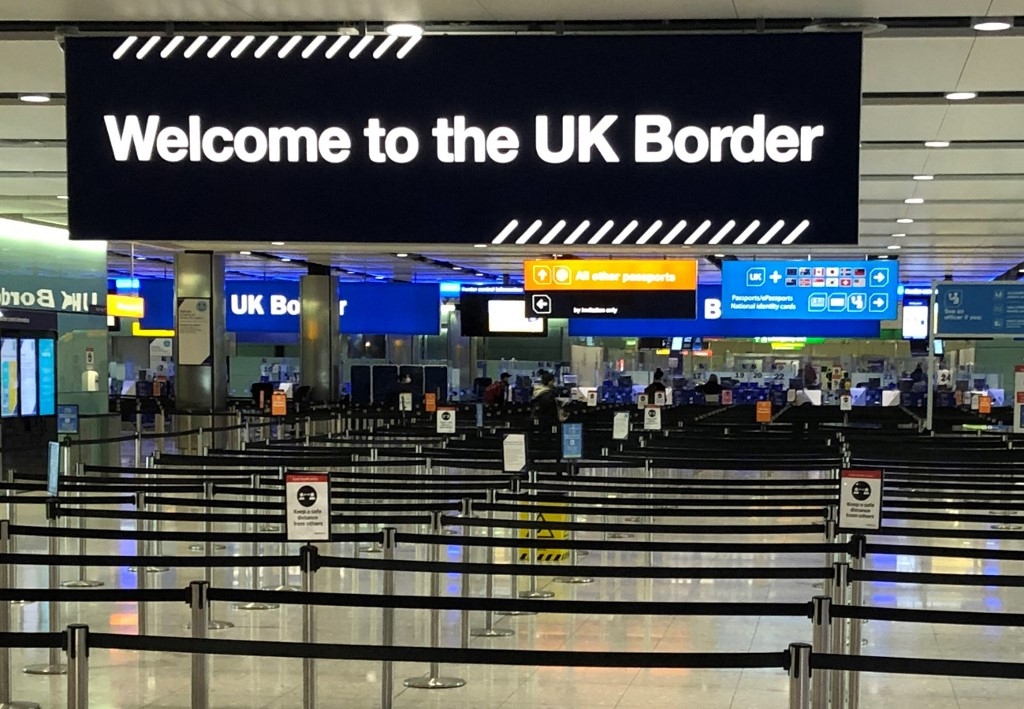
A British man who was left stranded abroad after being unlawfully stripped of his citizenship and was then questioned by police for 10 days on his eventual return to the UK has been released without charge.
The man, known as N3 in court proceedings in which he successfully challenged the government's efforts to revoke his citizenship over his travel to Syria, was reunited with his wife and children on Friday after nearly four years apart.
New MEE newsletter: Jerusalem Dispatch
Sign up to get the latest insights and analysis on Israel-Palestine, alongside Turkey Unpacked and other MEE newsletters
The 37-year-old, who says that he is an aid worker, was handed over to British police by French immigration officials at a UK border crossing in northern France on 28 April and arrested on suspicion of terrorism offences.
Police were subsequently granted a court order allowing them to extend his detention, but on Friday he was released without charge.
"I have always expressed my willingness to return to the UK and clear my name against any false allegations that have been made against me," said N3.
"I am overjoyed to be reunited with my family, and I am looking forward to making up for the last three-and-a-half years that were stolen from my family by the Home Office."
N3 was deprived of his citizenship in 2017 on the grounds that he was assessed by the government to be a threat to national security because of his travels to Syria, and because it deemed he was a Bangladeshi national.
His legal case has shone a light on the use of citizenship-stripping orders against dozens of other British nationals in Syria. It eventually led to the government conceding that it had used the controversial powers unlawfully against British nationals of Bangladeshi descent.
The UK and citizenship-stripping powers
+ Show - HideThe UK has been described by researchers as a “global leader in using citizenship deprivation as a counterterrorism measure”.
Historic citizenship-stripping powers targeted at naturalised citizens on disloyalty grounds had largely fallen into disuse prior to 2002, when the government introduced new measures in an attempt to revoke the citizenship of Abu Hamza, an Egyptian-born cleric subsequently convicted of terrorism in the US.
The 2002 legislation allowed for British-born nationals as well as naturalised citizens to lose their nationality rights. Successive governments gradually broadened the scope of the powers so that home secretaries can now deprive anyone of citizenship if they are satisfied that doing so is “conducive to the public good” and would not leave an individual stateless.
No criminal conviction is required. Letters often state that individuals have been assessed as presenting “a risk to the national security of the United Kingdom”.
The government’s use of the powers surged to unprecedented levels in response to the perceived threat posed by British nationals returning from Syria.
Between 2010 and 2015, 33 people were stripped of their citizenship, according to Home Office figures. In 2016, 14 people were deprived, and in 2017 the number jumped to 104.
In 2018, the figure was 21, and in in 2019 - when Shamima Begum was among those targeted - it was 27. It then dropped to ten in 2020 and eight in 2021.
Some subjects of citizenship-stripping orders argue that they have been left effectively stateless, because the government bases its assessment that they are dual nationals on a right of citizenship to a parent’s country of birth, even if they have never taken up that citizenship or even visited the country.
In some cases the Special Immigration Appeals Commission, which rules on citizenship cases, has agreed: it has ruled in favour of British nationals of Bangladeshi descent on the grounds that Bangladesh does not consider them citizens if they have not claimed Bangladeshi nationality before the age of 21.
Human rights organisations and lawyers have compared the powers to “medieval exile and banishment”. Critics also point out that the powers create a two-tier system in which only those deemed to be dual nationals are at risk of losing their British citizenship; a measure that discriminates against naturalised citizens, immigrants and their children.
N3's citizenship was restored in 2018 by the Special Immigration Appeals Committee (SIAC), which rejected the government's argument that he was entitled to Bangladeshi citizenship and had not therefore been left stateless.
N3 was born in Bangladesh but was entitled to British citizenship by birth, and he grew up in the UK. SIAC ruled that his right to claim Bangladeshi citizenship had expired at the age of 21.
The government appealed against the ruling. In 2019 the Court of Appeal ordered SIAC to look again at the case because of an "error in law," depriving N3 of his citizenship once again.
N3 applied to appeal against that judgment at the Supreme Court. Then, last month, SIAC ruled in favour of three other British nationals who it said had been wrongly assessed to be Bangladeshi nationals in a case which corrected the legal issues raised in N3's case by the Court of Appeal.
Pressed by N3's lawyers to drop the case against him, Home Secretary Priti Patel wrote to him in France on 20 April to notify him that the government conceded that he had been wrongly deprived of citizenship.
Patel subsequently issued a temporary exclusion order against N3, a counter-terrorism measure allowing for his return to be managed and his subsequent arrest.
Fahad Ansari, N3's lawyer, said: "The Home Office did not just unlawfully strip my client of his citizenship for over three years. They also stripped his children of their father, his wife of her husband, and his elderly and ailing mother of her son. My client is an innocent man and today he has demonstrated this to the full satisfaction of the Metropolitan Police.
"It is a shame on the British justice system that individuals can be subjected to the maximum penalty of losing their citizenship and left in exile without ever being asked a single question by a police officer."
Muhammad Rabbani, the managing director of Cage, an advocacy group that highlights the impact of counter-terrorism powers on Muslim communities, said the case raised concerns about the use of secret evidence against people targeted by citizenship-stripping powers.
Critics of the use of the powers say they are unfair because the government is allowed to draw on secret evidence in assessing whether someone poses a security threat which even appellants and their lawyers are not allowed to see when challenging a decision.
"For almost four years, the British public has been misled about the truth concerning N3," said Rabbani.
"This was only possible due to the use of secret evidence that cannot be challenged in open court or even seen by N3. Now that N3 is back home as an innocent man, it is high time to do away with the abuses of the citizenship deprivation regime."
Middle East Eye delivers independent and unrivalled coverage and analysis of the Middle East, North Africa and beyond. To learn more about republishing this content and the associated fees, please fill out this form. More about MEE can be found here.


